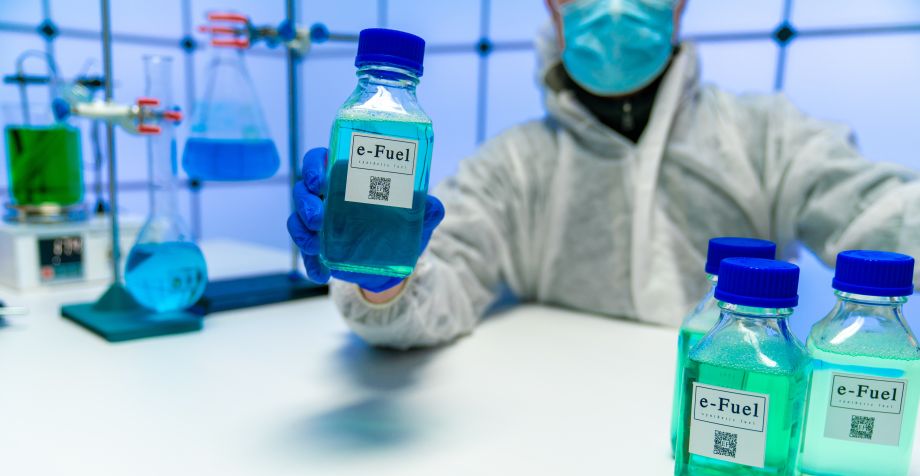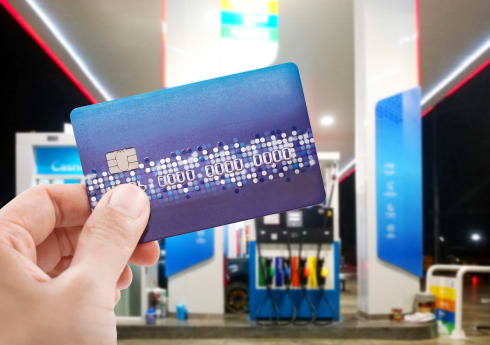Synthetic fuels: The perfect eco-friendly petrol alternative?
What’s the future of fuel? It’s certainly not going to be diesel or petrol, which is why electric vehicles are becoming so popular.
But what about synthetic fuels? You’ve no doubt heard of them, so are efuels the answer to our long-term energy needs? Well, we’re here to find out! Join us as we explore the synthetic fuel world and have a gander at whether it’s what the world’s been waiting for.

What are synthetic fuels?
It’s a liquid fuel that’s taken from syngas. That’s a mixture of carbon monoxide and hydrogen, with the synthetic fuel basically acting as a replica of diesel or petrol.
You’ll also sometimes hear it called synfuel and efuels.
But this isn’t a totally new type of fuel. German chemist Freidrich Bergius (1884-1949) developed what’s called the Bergius process in 1913. That was the foundation for synthetic fuels and where converting coal to synfuel began.
So, yes, it’s nothing new to the world.
The reason it’s in the news is because it’s an environmentally friendly replacement for the damaging fossil fuels used across the world today. Ones that are seriously harming the environment and causing climate change.
With synthetic fuels, we might cut down on CO2 emissions enormously.
And to add to that excellent news, it’d still work like regular fuel these days! All you’d need to do is fill up your car in the normal way at a petrol station and you could drive around like usual.
Sounds too good to be true, right?
Well, yes. Kind of. And that’s the problem, starting with the way synfuels are made.
How is synthetic fuel made?
It’s a complex process to make synthetic fuels and it helps if you’re a chemistry whizz.
Synfuels are manufactured using chemical conversion processes. That involves defossilised CO2 sources. For those of us without chemistry degrees, here’s a breakdown of the process:
Using electric power, water is split into hydrogen and oxygen
Along with CO2 from the atmosphere, hydrogen can be converted into synfuels
That’s really simplifying the process, of course, but those are the basics. The problem is this currently takes a massive amount of energy to create.
But in future, if renewable energy resources are used to split water into hydrogen and oxygen then the potential is for a highly eco-friendly fuel.
And all current cars can run on these synthetic fuels. Naturally, that’s led to a big talking point over the future of the road car industry.
Will synthetic fuel save petrol cars?
The potential is there to keep combustion engine cars on the roads. Synthetic fuel for cars has the potential to do that… but, at the moment, the technology isn’t quite there to save road cars as we know them.
Unfortunately, making synfuels is hyper-inefficient.
It’s around four times worse than electric vehicle (EV) batteries. And that’s not expected to improve much over the next 30 years. Yes, by 2050 we’re talking about powering a fleet of vehicles with synfuels using four times more electricity.
And that’s not good for anybody.
That means electric vehicles will grow in popularity, making them the best option for businesses and drivers wanting to go green.
And for anyone with a fleet of diesel or petrol cars, you can take steps to economise your fuel usage and become more efficient.
Every little helps, after all. And that’s why we recommend fuel cards.
iCompario tip: Fuels cards solve many of your fuelling problems
By picking up fuel cards, you can save your business time and money! You reduce admin workload, can reclaim VAT and you save money on fuel expenses. With fuel cards you can quickly spot savings—the data you get makes it easy to spot opportunities. So, compare the market for the best deals!
Is synthetic fuel really eco-friendly?
It’s renewable as a fuel, so yes that’s a great start. But whether it’s eco-friendly really depends on how it’s created.
To make efuels, currently that takes a lot of energy. So it’s not very practical on a long-term basis.
The goal is to reach a point where making synfuels is super energy efficient. At which point, we’d be all on for a game changer.
Do modern cars use synthetic fuels?
No. They don’t. No road cars, at the moment, use any type of efuel. It’s just not available on the market.
As we’ve covered above, manufacturers are making steps towards delivering it as a fuel option. But for now, you’ll have to make do with diesel, petrol or electric.
What about synthetic fuels and Formula 1?
Right now, Formula 1 is more popular than ever (we proved that with our look into the most popular F1 drivers).
Well, Formula 1 and synthetic fuel are a great match.
The sport is pushing to become environmentally friendly. It needs to, if it wants a long-term future on the global stage.
And it’s certainly got some of the best minds in the world to help it get fully sustainable.
F1’s synthetic fuel goals
While Formula E has gone electric, F1 is determined to stick to its fuel roots.
Its plan is to develop a 100% sustainable fuel. By 2030, the sport wants to be Net Zero Carbon. Synfuels would help the sport reach that goal. And with the development of efuels, its success would trickle down to the road car industry. In that situation, everyone wins!
And synthetic fuel already has a lot of support in F1, including from 2016 world champion Nico Rosberg. In October 2021 he told CNBC News:
“If, potentially, we could create a bridge there … with synthetic fuels, it could have such a huge impact globally. And if Formula One can play a role in that I’ll be very, very proud.”
Also from October 2021, on the official F1 website, engineer Pay Symonds said in how F1 is creating the next gen of 100% sustainable fuels:
“Carbon capture is a method that actually we’re quite keen on because it takes the carbon directly out of the air. It’s in its infancy, but there are plants doing it; there’s some in Canada, there’s one in Switzerland that’s quite large, there’s some in South America that are quite large. So it is doable, and I think in 20 years’ time, actually there’ll be quite a lot of it around. But it is very, very experimental.”
Ambitious goals for F1. If the sport can do it, the global impact will be enormous.
But, as Symonds says, it’s experimental. We don’t know what the outcome will be, but F1 could lead the change towards a dramatic shift in global fuel use.
The synthetic fuels verdict
While synfuels would be a fantastic solution for the climate crisis, it’s currently not really the right option.
Give it 30 years… and it just might be.
But that’s a long old wait. And in the meantime, what we have is synthetic fuel that’d be very expensive (£4 a litre). Four times more expensive than petrol.
In the UK, where filling up a tank is now £100, that’s not a very good outcome for anyone.
For now, the focus will be on making diesel and petrol cars more efficient to drive. Plus, the rise and rise of electric vehicles will likely dominate business needs for the foreseeable future. At least for the next 20 years or so.
What should your business do?
Well, you can buy modern cars that are fuel efficient. Or go electric! The choice is yours, but there are perks to electric vehicles to go with the environmental benefits.
iCompario tip: Use EV charge cards to save money
With an electric vehicle, you can massively decrease your carbon footprint. And with an EV charge card, you can make charging your battery easier than ever. With one card, pick from thousands of charge points across the UK to get back up to speed in no time. Compare the market for your best deal.



